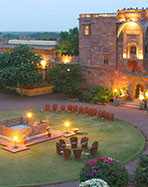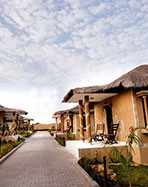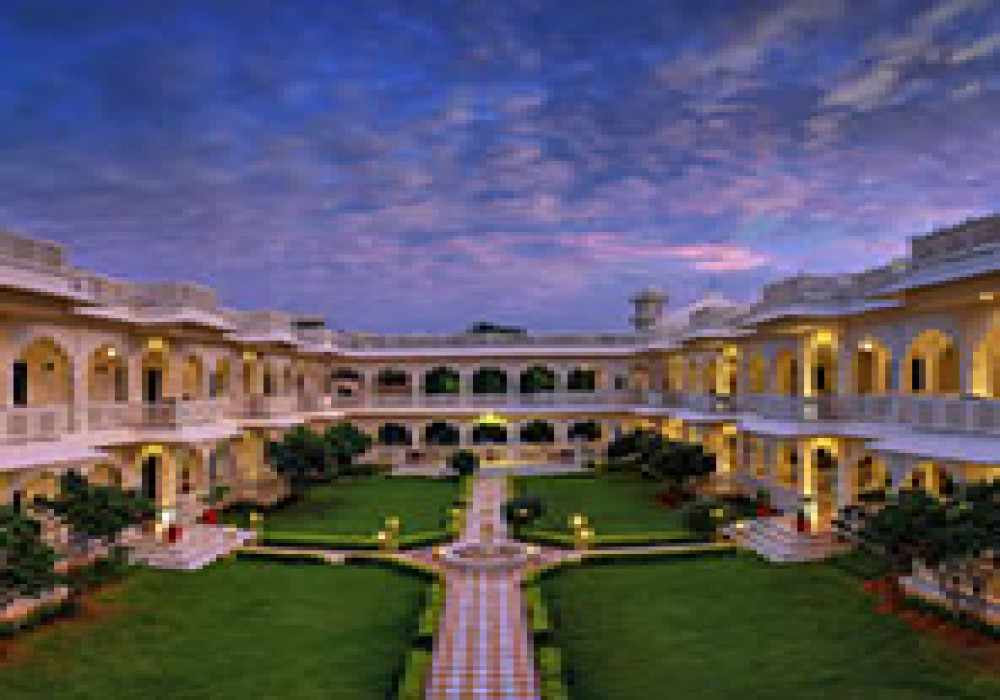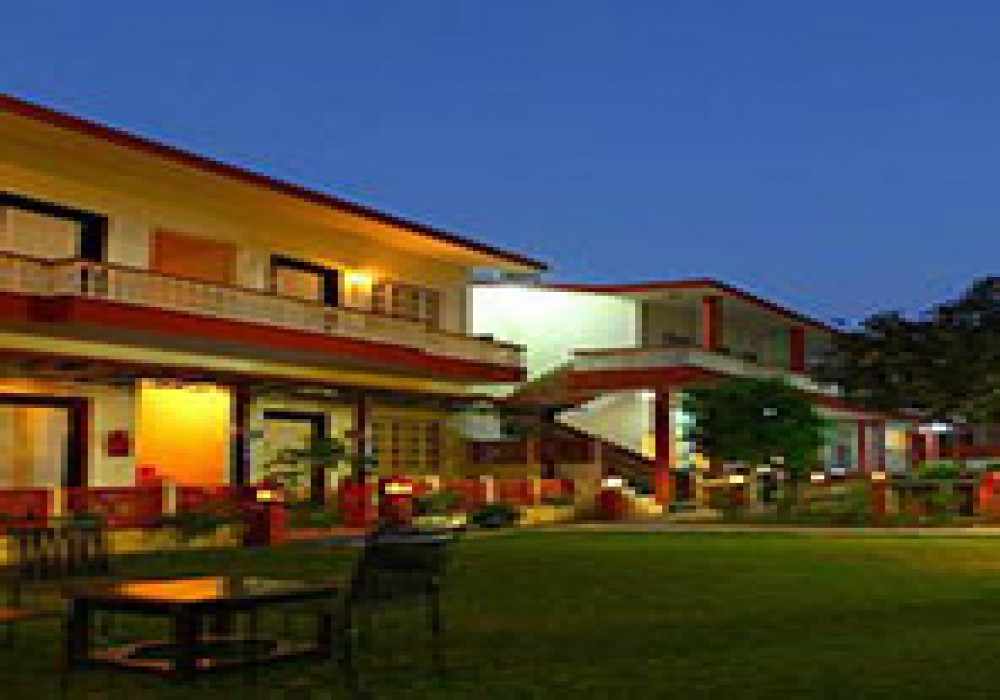Rajasthan, known as the "Land of Kings," is India's largest state by area, spanning 342,239 square kilometers. Located in the northwest part of the country, it shares international borders with Pakistan and domestic borders with Punjab, Haryana, Uttar Pradesh, Madhya Pradesh, and Gujarat. Rajasthan's rich history is a tapestry woven with tales of valiant kings, majestic forts, and splendid palaces. The region was once home to the powerful Rajputana clans, known for their bravery, honor, and chivalry. The state’s capital, Jaipur, often referred to as the "Pink City," was founded in 1727 by Maharaja Sawai Jai Singh II and is renowned for its stunning architecture and vibrant culture.
Rajasthan's history dates back to the Indus Valley Civilization, with ancient settlements such as Kalibangan in the Hanumangarh district. The state has been a witness to numerous historical events, including the legendary battles of Haldighati and the reign of Maharana Pratap. The magnificent forts of Mehrangarh, Amer, and Chittorgarh, along with the palatial structures like Udaipur's City Palace and Jaisalmer's havelis, stand as testament to the architectural prowess and artistic heritage of the region.
The Thar Desert, often called the Great Indian Desert, occupies a significant portion of Rajasthan and is characterized by its vast sandy terrain and unique desert ecosystem. Camel safaris and desert festivals offer glimpses into the nomadic lifestyle and traditional customs of the desert communities. Rajasthan's cultural tapestry is further enriched by its folk music, dance forms like Ghoomar and Kalbelia, and its exquisite cuisine, which includes dishes like Dal Baati Churma and Laal Maas.
History of Rajasthan
The history of Rajasthan has witnessed the power and downfall of Rajputs, Marathas, Chauhans, Mughals, and the British. Basking in the glory of prosperity, wealth, art, architecture, and literature - the state is indeed a mosaic of historical events. Various excavations conducted proclaimed the traces of the Indus Valley Civilization in the Jhunjhunu and Sikar districts and traces of the Harappan Civilization near Kalibanga. Rajasthan was a realm for Arjunyas, Kushans, Malavas, Sakas Satrapas, and Yaudheyas, who ruled the region till 321 BCE, after which the Gupta dynasty came to power. Later in the 7th century, the kingdom was followed by Gujara-Pratiharas. By the early 8th century, the Rajput dynasty rose to prominence in the Thar region, and in the 9th century, they were commanding over the entire state. The state was flourishing and became an attraction for foreign and Muslim invaders. In the 10th century, the Rajputs joined hands with Chauhans to fight against the invaders. Together, they emerged victorious in most of the battles against the Muslim rulers.
The Battle of Tarain in 1191 marked the victory of Prithviraj Chauhan over Muhammad Ghori, while in the following year, 1192, Muhammad Ghori defeated the Chauhan King and established the first Muslim empire in Rajasthan. Hem Chandra Vikramaditya defeated Ghori and hoisted his flag in Rajasthan in 1553, but it didn't last long, as in the battle of Panipat in 1556, Hem Chandra was defeated by Akbar. Akbar extended hands for an alliance with the Rajput rulers and married Rajput princess Jodha Bai. In the battle of Dewar in 1588, Rana Pratap defeated Akbar, and the Mughal empire crumbled. Then, in the early 1700s came Holkars and Scindia rulers, who were aided by Maratha rulers. By the 19th century, East India Company established its base in Ajmer and gradually gained control over the entire region. Rajput rulers signed the treaty to form a single pact that was named Rajasthan. Jaipur, Marwar, and many regions were established under the British Raj. India gained independence in 1947, after which a political treaty was formed, and the Rajput rulers were asked to join India as an independent country. Later, Indira Gandhi abolished the monarchy system in Rajasthan, and it became a full-fledged part of India.
Culture of Rajasthan
Known as the Cultural Capital of India, Rajasthan is a state in India that upholds the essence of the royal grandeur of Kings and Rajputs and the folk culture of many tribal communities. Rajasthan has marked its place as the Land of Maharajas on the tourist map and is listed amongst the most culturally rich, vibrant and alluring states in India. Replete with painted Havelis, rituals, folk traditions, music, songs, dance, festivals, and handicrafts - the culture of Rajasthan has always attracted tourists from all over the world, making it a famous tourist destination in India. The cultures and traditions of Rajputs have an everlasting impact on the society of Rajasthan; however, tribal ethnicity and practices are major attractions for the state.
The culturally diverse society of Rajasthan is an amalgamation of Hindus with substantial minorities of Muslims and Jains. Some of the oldest tribes – Bhils, Minas, Meos, Banjaras, Gadia, and Lohars add to the cultural diversity of the state. Marwari is the native language. However, languages such as Malvi, Mewati, and Dhundari are widely spoken. Folks of Rajasthan are famous for their hospitality and royal treatment, which attracts travellers from all around the world. They treat their guests like God and amuse them with warmth. It has been a realm of many rulers and is blended with myriad cultures that epitomized Rajasthan to the fame of luxuriance and affluence.
Art and Handicrafts of Rajasthan
Bewitching handicrafts and clinquant jewellery of Rajasthan have always caught the fancy of tourists from all over the world. Textiles, silver, semi-precious stonework, embroidery, zari work, mirror work, leather goods, and metal string needlework are exquisite and hard to resist. The state is famous for its vivid printing techniques, such as block prints, tie and dye prints, Bagru prints, and Sanganeri prints that are exported to different parts of the world. The art of making puppets and their live displays in shows adds to the charming handicraft culture of Rajasthan. Intricately carved wooden furniture, detailed carpets, and exquisite blueprint pottery of Rajasthan are immensely popular worldwide.
Each region in Rajasthan has a distinct folk culture, making it a melting pot of distinct folk music and dance styles. Folk Singing is a profession of communities such as Fedalis, Patars, Kanchari, Nats, Hawaii, and Rawals, while Manganiyars and Langas are the two most popular communities that represent Rajasthan folk music on global platforms. The famous dance forms - Kalbeliya from Jaisalmer and Ghoomar from Udaipur have gained popularity in many parts of the world. From subtle colour palettes to vibrant layouts, Rajasthan showcases a wide range of timeless art forms that can be seen on the walls of monuments as well as on the fabrics of the state.
Food of Rajasthan
Regional cuisines of Indian states are as unique as the diversity. The distinct flavours of the Rajasthani kitchen are a blend of aromatic spices and unique ingredients from different regions. Rajasthan is known for its royal traditions and rich culture, which offers an array of delectable dishes that can tantalize your taste buds. Dal-Baati dunked in desi ghee with dainty churma, which is the hallmark dish of the state. Laal Mass is a signature dish that is a heavenly combination of mutton and spices. Famous Gatte ki sabzi is a fiery combination of curry and spices. Mirchi vadas and Mawa Kachoris of Jodhpur are simply mouth-watering.
Alwar's sweet-savoury milk cake is absolutely delightful. Ghevar, Mohan thal, and Dil Khushal are some of Rajasthan's traditional sweet treats. Pyaaz Kachori, Ker Sangri, Rajasthani Kadi, Ram Pulao, Methi Bajra Poori, Kalmi Vada, Aam ki Launji, Bikaneri Bhujia are some of the typical dishes of Rajasthani cuisine
Places To Visit In Rajasthan
An icon of royalty, the city of kings and queens, Rajasthan is all about its rich heritage, lip-smacking food, incredible locales, and incredible attractions. The following are a few activities that can certainly make your experience heartwarming.
- Peddle around the Pink City Jaipur by cycling to enjoy the ride and miss the traffic.
- Pick up a tour of wildlife safaris of India for a rendezvous with Rajasthan’s denizens.
- Savour the Rajasthani food at Chokhi Dhani.
- Cherish the architectural wonders in the heritage cities of Rajasthan.
- Do not miss a camel ride in the deserts of Pushkar and Bikaner.
- Have a meeting with ghosts at Bhangarh Fort - one for travellers who are interested in visiting haunted places.
- Seek blessings at Ajmer Sharif, which is one of the significant religious shrines in India.
- Create waves by motor boating at Fateh Sagar Lake in Udaipur.
- Spend a day with elephants at Dera Amer Camp in Jaipur.
- Go on a shopping spree at local markets of Rajasthan that are dotted with the best handicrafts in India.
rom the splendid forts of Bikaner to the pilgrimage site of Ajmer, from the city of Lakes-Udaipur to the golden city - Jaisalmer, from Baoris of Bundi to the golden sand of Pushkar, from verdant sanctuaries of Bharatpur to hilly terrain of Mount Abu, from the capital city of Jaipur to IIT coaching hub - Kota, Rajasthan is unbelievably diverse and breathtaking. Constant efforts by Rajasthan Tourism have helped maintain the ethnicity of the royal culture of India. The Desert Capital, Rajasthan, is one of the finest tourist destinations of India, where vibrant folk culture oozes out from each grain of sand.
Read More : Things To Do In Rajasthan
How to Reach?
By Air:
- Major airports: Jaipur, Udaipur, Jodhpur
- Jaipur International Airport (JAI): Numerous domestic and international flights
- Udaipur's Maharana Pratap Airport (UDR) and Jodhpur Airport (JDH): Regular flights to major Indian cities (Delhi, Mumbai, Bangalore, Kolkata)
By Train:
- Extensive railway network
- Major railway stations: Jaipur, Jodhpur, Udaipur, Ajmer, Bikaner
- Palace on Wheels luxury train: Tours through iconic landmarks
- Regular trains (Shatabdi, Rajdhani Express): Connections to Delhi, Mumbai, Chennai, Kolkata
By Road:
- Well-maintained National and State Highways
- Rajasthan State Road Transport Corporation (RSRTC): Regular and deluxe bus services to/from Delhi, Gujarat, Haryana, Uttar Pradesh, Madhya Pradesh
- Options for hiring taxis or self-drive cars
By Bus:
- Private and state-run bus services
- Luxury coaches, Volvo buses, state transport buses
- Well-served routes to major cities like Jaipur, Jodhpur, Udaipur from Delhi, Ahmedabad, and nearby cities
Book Rajasthan Tour Packages
Reaching Rajasthan is convenient and ensures a memorable journey to the land of kings and vibrant culture.
Experience the royal charm of Rajasthan with Adotrip! Embark on a journey through the land of majestic forts, vibrant festivals, and rich traditions. Whether you wish to explore the bustling markets of Jaipur, the serene lakes of Udaipur, or the golden sands of Jaisalmer, Adotrip has you covered. Book your Rajasthan adventure now and uncover the timeless beauty and grandeur of this incredible state. Don’t wait – your royal adventure awaits with Adotrip!















